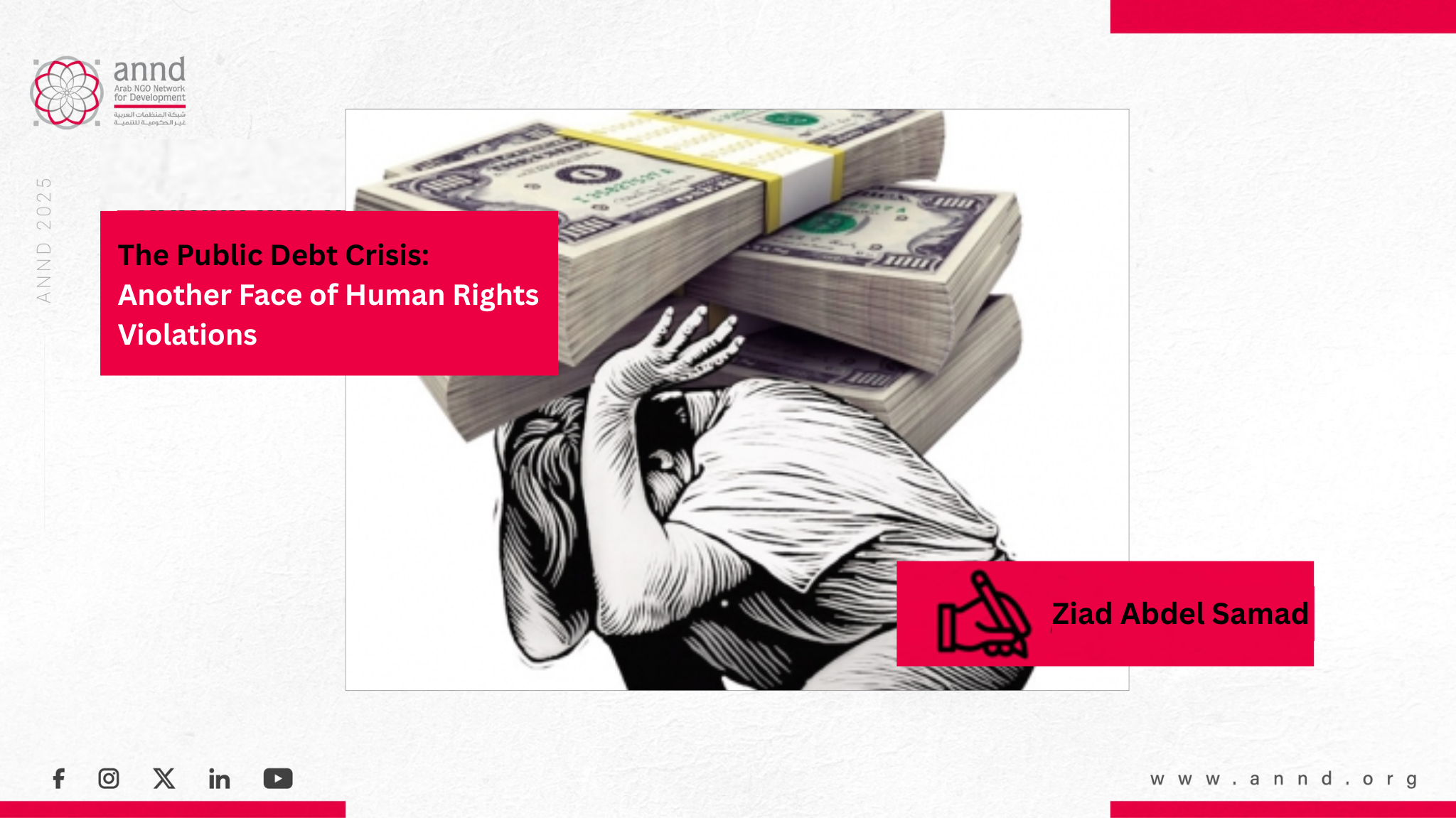
The Public Debt Crisis: Another Face of Human Rights Violations – Ziad Abdel Samad
The Public Debt Crisis: Another Face of Human Rights Violations – Ziad Abdel Samad
Public debt is not just numbers piling up in the Ministry of Finance reports or on international banks’ screens. It reflects a long economic and political path that has made our societies more fragile and people’s rights less guaranteed. When we look at the reasons behind the swelling debt in our region, we find that it is not destiny, but the result of choices and policies accumulated over decades.
We have built a rentier economy that relies more on the outside than on itself. Oil rents, remittances from expatriates, and international aid provided easy resources for some time, but they did not create a solid productive base, nor did they protect us from shocks. With every crisis, the easy solution was borrowing.
At the same time, current expenditures—salaries, subsidies, and debt service—swallowed the largest share of budgets, while tax revenues remained limited and unjust. Taxes in our region are not progressive; they rely more on consumption than on wealth or large profits, leaving the poor and middle classes to bear the greatest burden, while the wealthiest segments escape fair contribution.
Corruption and weak governance cannot be overlooked. Part of the debt piled up to finance waste and corruption instead of going to productive investments. Often, our countries borrowed under unfair terms, raising the cost of debt and shrinking our economic sovereignty. Added to this is the imbalance in the international financial system, with its unequal trade and financing rules, debt relief frameworks led by creditors, weak representation of the Global South in major financial institutions, and conditionalities that impose austerity and drain the tax base through illicit financial flows.
All this is not confined to accounting books. Public debt reshapes state priorities and directly affects people’s rights. The higher the debt service, the smaller the budgets allocated for education, health, social protection, and decent work. Public hospitals suffer, essential medicines disappear, schools lack funding, and support programs shrink under the slogan of “fiscal reform,” while the most vulnerable groups are left alone to face poverty and unemployment. When states submit to creditors’ dictates, their social and economic policies are mortgaged to external powers, undermining peoples’ right to decide their own economic destiny.
Nevertheless, we should not surrender to a bleak picture. Alternatives exist if the will is there. Fair tax reform that imposes taxes on large profits, wealth, and rents instead of burdening the middle and poor classes. Redirecting spending toward investment in people rather than debt service. Restructuring debts under fair conditions that respect basic rights. Combating corruption and strengthening transparency and governance. And of course, building a productive economy that reduces the need for borrowing in the first place through agriculture, industry, technology, and job opportunities.
Here emerges the role of civil society and the media. They are not spectators, but capable of exposing the cost of debt on people’s lives, pressing for greater budget transparency, and building public opinion that rejects unfair policies and demands more just paths. The media is called upon to break the dry numbers discourse and reveal the human face of the crisis: mothers who cannot find medicine for their children, students who drop out of school, and young people who emigrate in search of opportunity.
The debt of our region reached $1.55 trillion in 2023. But the real challenge lies not only in its size, but in how it is managed, and in the economic choices that have made the weakest groups bear the greatest burden. Seeking fairer alternatives requires rethinking the tax system, the role of the state, and the financing tools that place development and human rights at the forefront of priorities.
Recent publications

